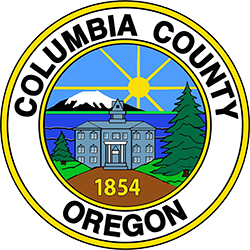Hot Weather and Extreme Heat
Help for When It Is Hot
- Drink water, stay in the shade and never leave people or pets in a hot car. Find other ways to stay cool and healthy below.
- Take care of yourself
- Drink more water than usual and do not wait until you are thirsty. Talk to your doctor first if you are on water pills.
- Avoid alcohol and sugary drinks.
- Take a cool shower or bath.
- Use air conditioning or a fan.
- Do not use a fan to blow extremely hot air on yourself, use it to create cross-ventilation.
- Wear lightweight and loose clothing.
- Avoid using your stove or oven.
Take care of those around you
- Check in on elders and vulnerable neighbors during warm weather – twice a day is best.
- Never leave a person, child or a pet in a hot care.
- Check regularly on how babies and toddlers, seniors, people taking mental health medications and people with heart disease or high blood pressure are doing. See "Warning Signs and Symptoms of Heat-Related Illness".
- Share a fan.
- Invite a friend to a splash pad, movie, a mall or museum.
If you must be out in the heat
- Limit your outdoor activity to morning and evening hours.
- Rest often in shady areas.
- Wear a wide-brimmed hat.
- Use sunscreen of SPF 15 or higher (the most effective products say “broad spectrum” or UVA/UVB protection” on their labels) and reapply as directed.
- Consider packing a couple extra bottles of water, these could be used for you and your family or anyone you see that looks like they could use a cool drink of water.
If you have a pet
- Provide plenty of shade and water.
- Never leave them in a car.
- Learn more
Cooling Centers
Check with Columbia County Department of Emergency Management Facebook and Twitter for locations.
First Aid Information
Hot weather can strain the heart, worsen asthma, emphysema and other conditions and make diabetes and hypertension harder to manage.
If you suspect someone has heat exhaustion or heat stroke, get them water and into a cool place immediately. If symptoms persist, or they lose consciousness, or have trouble breathing, call 911.
Heat Stroke
A condition that occurs when the body becomes unable to control its temperature, and can cause death or permanent disability. Symptoms include:
- High body temperature
- Confusion
- Loss of coordination
- Hot, dry skin or profuse sweating
- Throbbing headache
- Seizures, coma
First Aid
- Request immediate medical assistance.
- Move the person to a cool, shaded area.
- Remove excess clothing and apply cool water to their body.
- Rest in a cool area.
- Drink plenty of water or other cool beverages.
- Take a cool shower, bath, or sponge bath.
Heat Exhaustion
The body’s response to an excessive loss of water and salt, usually through sweating. Symptoms include:
- Rapid heart beat
- Heavy sweating
- Extreme weakness or fatigue
- Dizziness
- Nausea, vomiting
- Irritability
- Fast, shallow breathing
- Slightly elevated body temperature
For more information about heat stress.
Swim and Splash Safely
Swimming and splashing are great ways to cool off during a heat wave. But, water can quickly become dangerous. The U.S. Coast Guard and the American Red Cross advise:
- Swim in designated areas that are supervised by a lifeguard.
- Swim with a buddy – never alone.
- Teach children to ALWAYS ask permission to go in the water.
- Never leave children unsupervised in or near the water, even for a minute.
- Wear a life jacket when swimming anywhere without lifeguards or whenever you boat, jet ski, go tubing, rafting, or engage in other water sports.
- Inflatable toys and mattresses will not keep children safe. By law, children ages 12 or under must wear a U.S. Coast Guard-approved life jacket or vest on all vessels 18 feet or shorter.
- Do not drink alcohol or take drugs when swimming or boating.
- Do not dive into shallow water or unfamiliar swimming holes.

